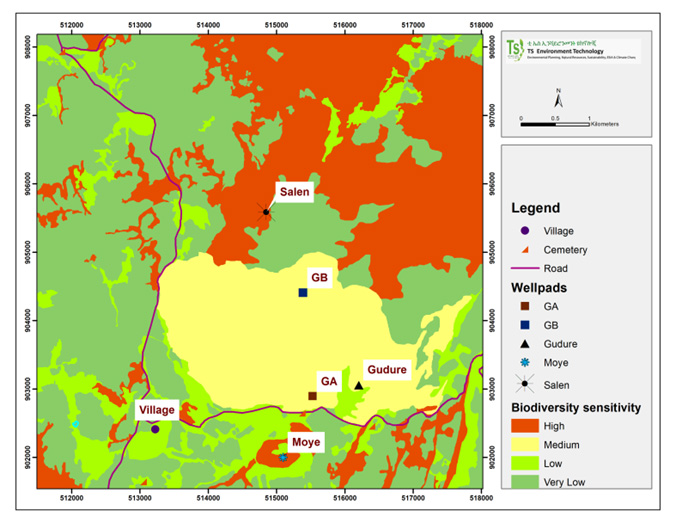RAPID Biodiversity Study for Reykjavik Geothermal Tulu Moye Project
Baseline biodiversity study has been conducted by TS Environment for RG on the larger Project area (Tulu Moye geothermal area). The Rapid (follow-up) biodiversity study focused only on the Gnaro lava field and surrounding areas which attempted to update the survey findings of the original baseline study. The Main activities of the proposed RBS Included;
- Undertake sampling for the specialist studies during the applicable periods considered as wet season, if at all possible the wet season sampling should follow rains fairly closely in order to highlight ephemerals for the area:
- Conduct the field studies in accordance with relevant national regulations and restrictions (legal or religious), but also ensuring compliance with international standards, policies, laws and regulations;
- Based on results, understand the implications of relevant legislation, guidelines and standards applicable to the protection and/or management of that environment in Ethiopia and according to IFC PS6

ENVIRONMENTAL AND SOCIAL BASELINE STUDY GAP ANALYSIS REPORT
TS Environment has prepared gap analysis report in accordance with the agreement made with RG on July 2017. The scope is to “Review the projects existing baseline study for the Tulu Moye Geothermal Project in Ethiopia” against IFC PS. Hence TS Environment has been commissioned by the RG to critically assess the methodology used and the conclusions reached by the current baseline report.
The scope of work as stipulated includes :
- Review of Project’s existing baseline study giving;
-
- Critically assess methodology and conclusions of the current baseline report;
- Identify if there are gaps in the baseline study and notify issues to be considered;
Accordingly, this report addresses the objectives of the scope of work. Basic to the review is an assessment of the project against the relevant IFC Performance Requirements, which are presented as follows:
- PR 1: Environmental and social appraisal and management;
- PR 5: Land acquisition, involuntary resettlement and economic displacement;
- PR 6: Biodiversity conservation and sustainable management of living natural resources;
- PR 8: Cultural heritage.
